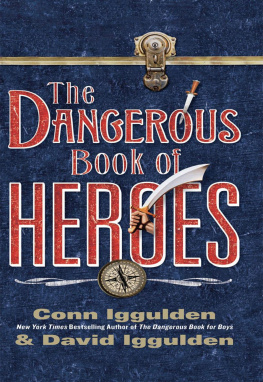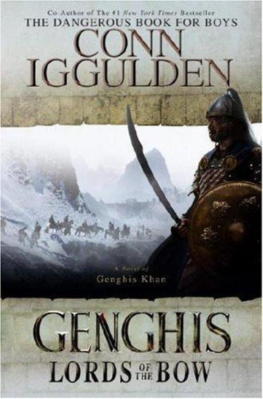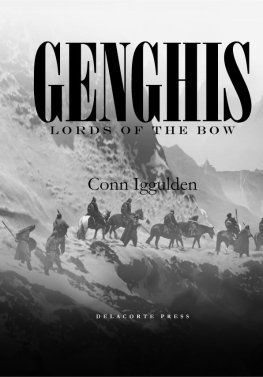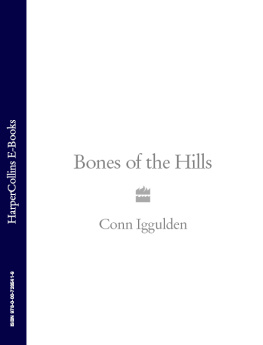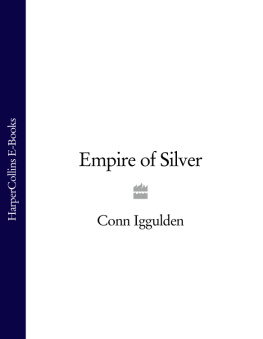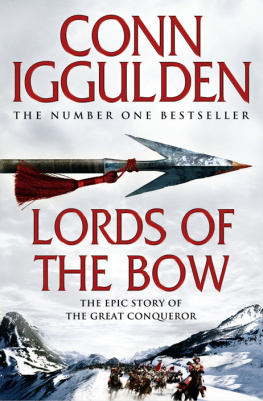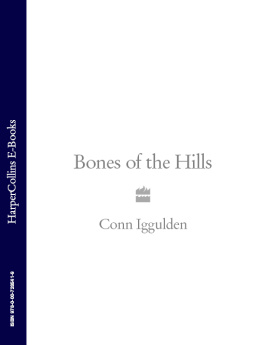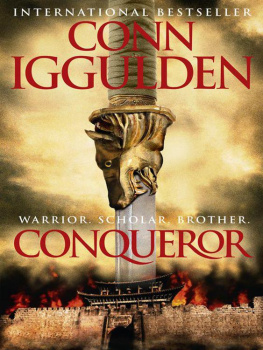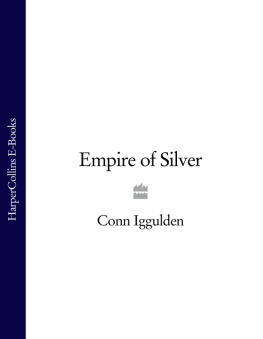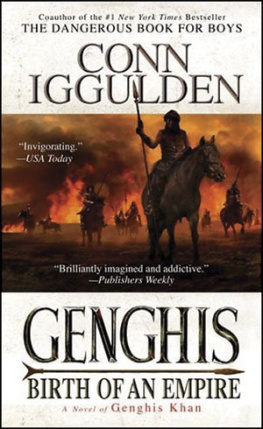G eorge Washington was not a great soldier. He was not even a great farmer, yet he was in the right place, at the right time, several vital times. His greatness was thrust upon him, so now it appears that, of all men, George Washington alone was destined to be the founding father of the United States of America.
His family traces its roots to Northamptonshire in England and a land grant by Henry VIII. Colonel John Washington sailed to the Virginia colony in 1657 to farm. The links with Britain were maintained, however, and Georges father, Augustine, was educated there. He briefly went to sea before returning to Virginia, where he farmed, built mills, was involved in iron-ore mining, acquired more land, and married twice. George was the eldest of Augustines second wife, Marys, six children. He was born at Popes Creek on February 22, 1732.
Three years later Augustine moved his family farther up the Potomac River to his land at Little Hunting Creek, and three years after that to Ferry Farm plantation on the Rappahannock River. Its there that red-haired George Washington was brought up, haphazardly educated at home and at the small local school. There are many tales of his childhoodthe chopping of the cherry tree, throwing a silver dollar across the mile-wide Potomacand all are myths. He was a Virginia farmers boy with an inclination to arithmetic, measurement, and trigonometry.
His father died when George was eleven, and his eldest half-brother, Lawrence, became a surrogate father to the boy. Lawrence suggested in 1746 that George enlist in the Royal Navy as midshipman. The navy then was becoming fashionable. All Britain, the colonies, and Europe were talking about the recent four-year voyage around the world by Commodore Anson, a voyage from which he returned to Portsmouth laden with fabulous treasure. Georges aptitude for mathematics might have made him a natural navigator, but his mother vetoed that career.
A nearby British landowner, Lord Fairfax, instead offered young George an assistants position in a survey he was financing. At sixteen years of age George trekked through the wilderness to the Shenandoah Valley, where he helped survey and plot some of Fairfaxs five million acres.
His diary of the 1748 journey records the experience of sleeping under a thread Bear blanket with double its Weight of Vermin such as Lice Fleas & c. Along the way they met a Native American war party bearing someones scalp. George Washingtons dislike of Native Americans surfaces early in his derogatory comment about central European immigrants: As ignorant a set of people as the Indians they would never speak English but when spoken to they speak all Dutch.
Copyright 2009 by Matt Haley
Washington made an impression in the Shenandoah survey. The next year he helped plan the town of Belhaven (Alexandria) and Lord Fairfax sponsored him to become surveyor of Culpeper County. For two years he traveled and camped through Culpeper and other Virginian counties, surveying and mapping the wilderness. It was during this time that Washingtons lifelong interest in western land development began. He saved money and purchased unclaimed Virginian land.
However, his surveying career ended abruptly in 1851 when Lawrence sailed to the colony of Barbados in a desperate attempt to treat his tuberculosis. George went with his half-brother, but it did neither any physical good. Lawrence died the following year, while George contracted smallpox, which left him with facial scars. Lawrences daughter died within two months of her father, leaving George to inherit the Little Hunting Creek (Mount Vernon) plantation on the Potomac River.
At twenty, an established and capable surveyor, Washington instead became farmer of a tobacco plantation of two thousand acres with eighteen slaves. The boy had become a large man, six feet two inches tall, with a large nose, big hands, wide hips, and narrow shoulders. His height gave him a commanding presence, made more impressive when his red hair was powdered fashionably white. He never wore a wig.
Washington also applied for Lawrences vacant commission in the Virginia militia, despite a complete lack of military training and experience, and was appointed major. He concentrated on farming Mount Vernon, gradually purchasing more land and attempting to increase the quality and quantity of his tobacco. In the free London market, Mount Vernon leaf was marked as mediocre.
West of the Appalachians, meanwhile, trouble was brewing. In defiance of the 1713 Peace of Utrecht, French soldiers and settlers had moved back into the Hudson Bay area in the far north and into the Ohio Valley in the west. Successive timber forts marked the French expansion south to the Forks of the Ohio (then Virginia), a strategic gateway into the Ohio Valley. In December 1754, Virginia lieutenant governor Robert Dinwiddie asked Major Washington to deliver an official letter to the French demanding that they leave the area and return north.


